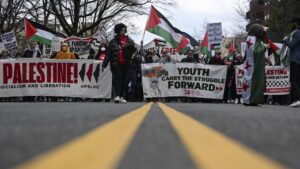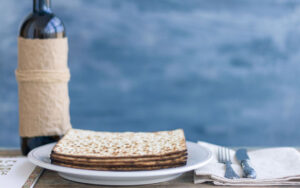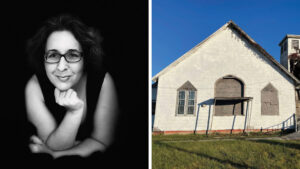On April 4, 1969, the first anniversary of the assassination of Dr. Martin Luther King Jr. and the third night of Passover, 800 people – Jews and Christians, white and African-American – assembled in the basement of a black church in Washington, D.C., for the first-ever Freedom Seder. Using a Haggadah written by Arthur Waskow, a Baltimore native and civil rights leader, the event used the themes of the Exodus story as a way of viewing contemporary civil rights struggles.
UMBC Hillel recently held a campus Freedom Seder. Jmore spoke with Rabbi Jeremy Fierstein, executive director of UMBC’s Hillel chapter, to discuss why a Freedom Seder is still relevant almost half a century later.
1 Why a Freedom Seder?
Baltimore City has a rich and compelling history with regard to the Jewish American and African-American communities. UMBC is intimately tied to the city, and by hosting a Freedom Seder we are able to introduce the local narratives of both communities as well as highlight the diversity of the campus community. … We’re asking what does freedom mean in general, and through the lens of personal narrative? When we hear personal narrative, people’s stories, it can change interactions.
2 Why this Passover?
Concerns about freedoms are particularly pertinent now with the refugee ban. … Following the [Trump administration’s travel] ban, UMBC put out a statement about our commitment to making all students feel safe on campus. We have many first-generation college students who are immigrants and came to our country as young children.
3 Who’s coming to dinner?
The seder is open to the entire campus community, but space is limited to 120. Hillel is co-sponsoring the event with the African Student Association, Black Student Union, Ethiopian-Eritrean Student Association, Freedom Alliance Mosaic Center, the Office of the Vice President of Student Affairs and Residential Life. We plan to have some of the founding UMBC graduates, and Dr. [Freeman A.] Hrabowski [III], president of UMBC, will be the last speaker of the night to capstone the experience.
4 How will this seder be different from other seders?
We have created our own haggadah using texts designed to stimulate discussion. Participants will be sitting at small tables so that they’ll be able to talk to each other.
The beauty of this campus is that we really focus on community and respectful dialogue. This is a great way to highlight both of these values.
5 Who’s making the matzoh balls?
Catering by Yaffa!
Cutline: Rabbi Jeremy Fierstein (front and center) with UMBC Hillel students. Courtesy photo





